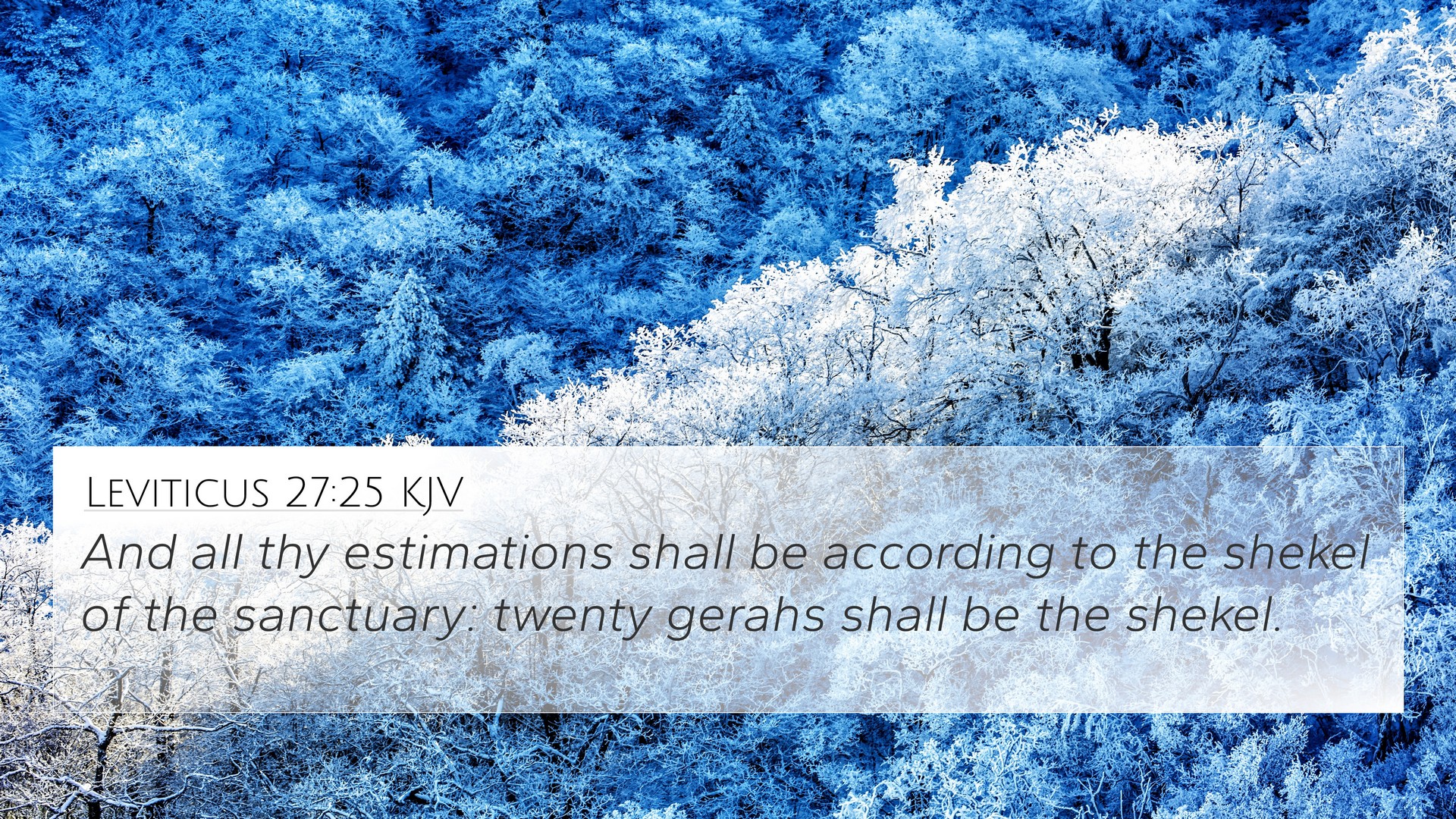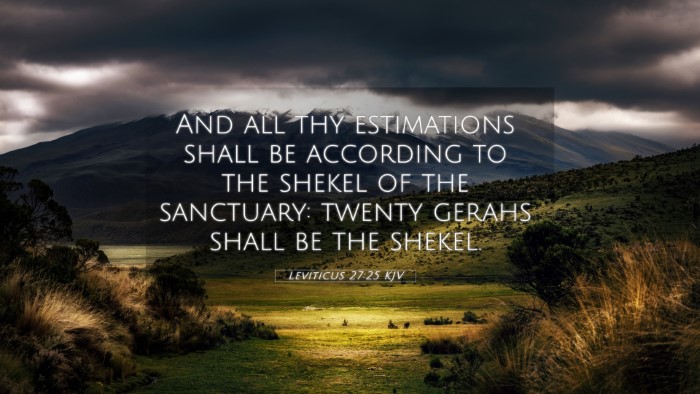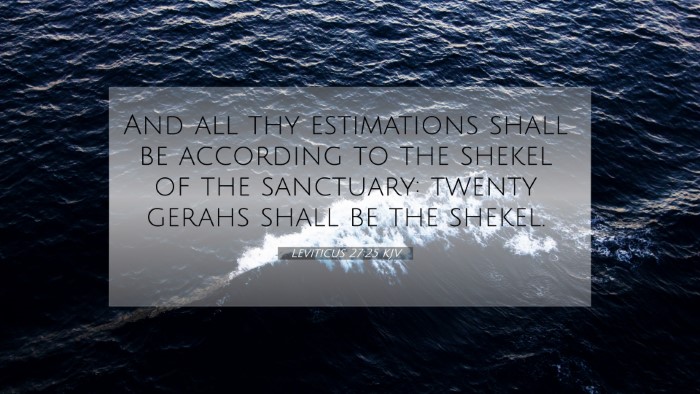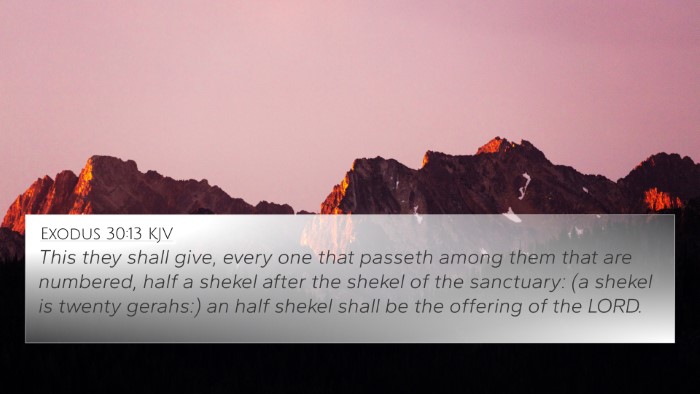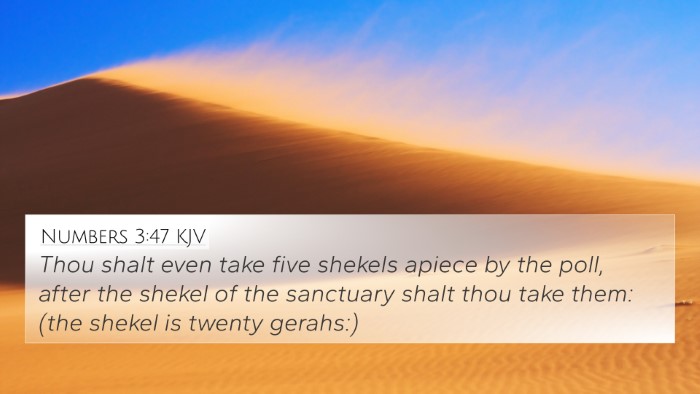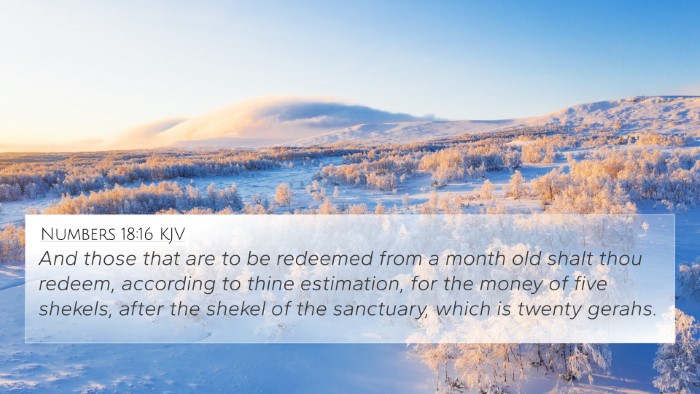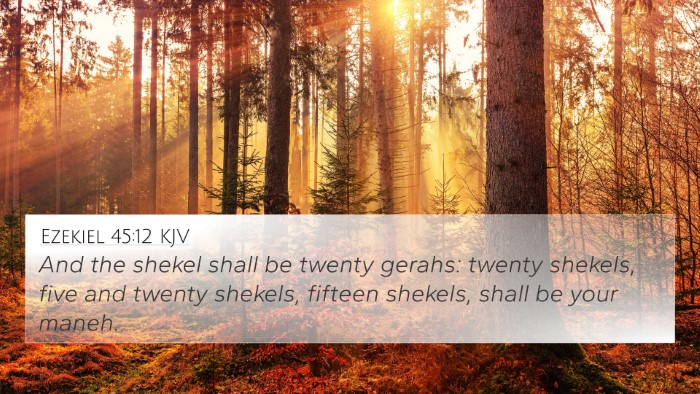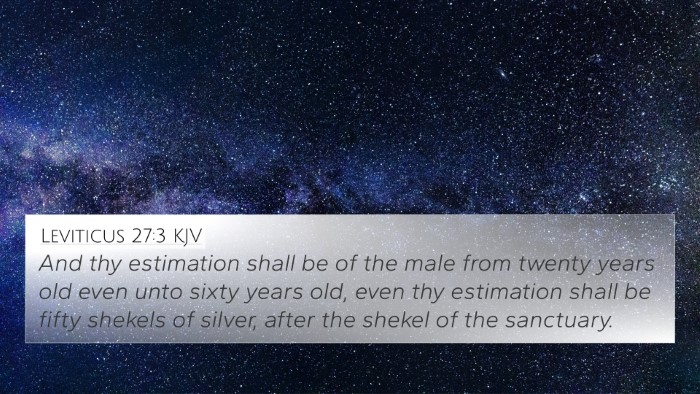Understanding Leviticus 27:25
Verse: "And all thy estimations shall be according to the shekel of the sanctuary: twenty gerahs shall be the shekel." (Leviticus 27:25)
This passage discusses the valuation system used in the context of vows or dedications made to God. It emphasizes that all estimations of values should align with the standard of the sanctuary shekel, which serves as a measure of worth.
Commentary Summary
The significance of this verse is profound as it reveals the structured approach God provided to His people concerning their offerings and dedications. The shekel, being a recognized monetary unit, conveys the importance of fair and consistent evaluation in spiritual matters.
Insights from Public Domain Commentaries
-
Matthew Henry:
Henry emphasizes that this verse is crucial for understanding the order God commands in dealings concerning vows. He notes it reflects God's desire for integrity in worship and the necessity of a uniform standard within the community to prevent disputes and ensure fairness.
-
Albert Barnes:
Barnes explains that the valuation according to the shekel of the sanctuary underscores God's holiness and the sacredness with which the Israelites were to treat their commitments. He points out that applying a divine standard helps in maintaining the purity and dignity of worship practices.
-
Adam Clarke:
Clarke comments on the implications of the shekel of the sanctuary being set at a specific rate, reiterating that it was vital to uphold the economic considerations within religious observance. His analysis indicates how these valuations fostered both reverence and accountability in the community.
Bible Verse Cross-References
This verse can be linked to various other scriptures that elucidate similar themes of valuation, holiness, and communal practices:
- Exodus 30:13 - Discusses the half-shekel contribution as a ransom for the soul.
- Numbers 18:16 - Talks about the valuation of the firstborn that is to be redeemed.
- Leviticus 27:2 - Introduces the laws pertaining to vows concerning persons, animals, and property.
- Deuteronomy 14:22-23 - Speaks about the importance of tithing and bringing offerings to the Lord.
- Matthew 5:23-24 - Addresses the importance of reconciliation before presenting gifts at the altar.
- Luke 21:1-4 - Highlights the widow's offering, demonstrating God's valuation of sacrificial giving.
- 2 Corinthians 9:7 - Indicates that God loves a cheerful giver, emphasizing the spirit behind contributions.
Thematic Bible Verse Connections
Leviticus 27:25 also connects with broader themes throughout Scripture, illustrating the enduring principles of stewardship and divine accountability:
- The value of commitments made to God is emphasized in both the Old and New Testaments.
- God’s holiness is a consistent theme that runs parallel through various Biblical texts.
- The concept of true spiritual offering is reinforced in teachings about generosity and sacrifice.
- Maintaining integrity in religious commitments highlights communal responsibility as discussed in several narratives.
Tools for Bible Cross-Referencing
For those seeking deeper insights through cross-references, the following tools are recommended:
- Bible concordance - A helpful resource to find key terms and their occurrences across scriptures.
- Bible cross-reference guide - A systematic approach to exploring connections between verses.
- Cross-reference Bible study sets - Tools designed for group studies or individual exploration.
Conclusion
Leviticus 27:25 serves as a critical foundation for understanding God's expectations in worship and offerings. It shows the importance of having a standard for valuation, encouraging believers to approach their commitments with careful consideration. By cross-referencing with other scriptural texts, one can appreciate the intricate web of divine principles governing the faith, enhancing one's study and interpretation of the Bible.
